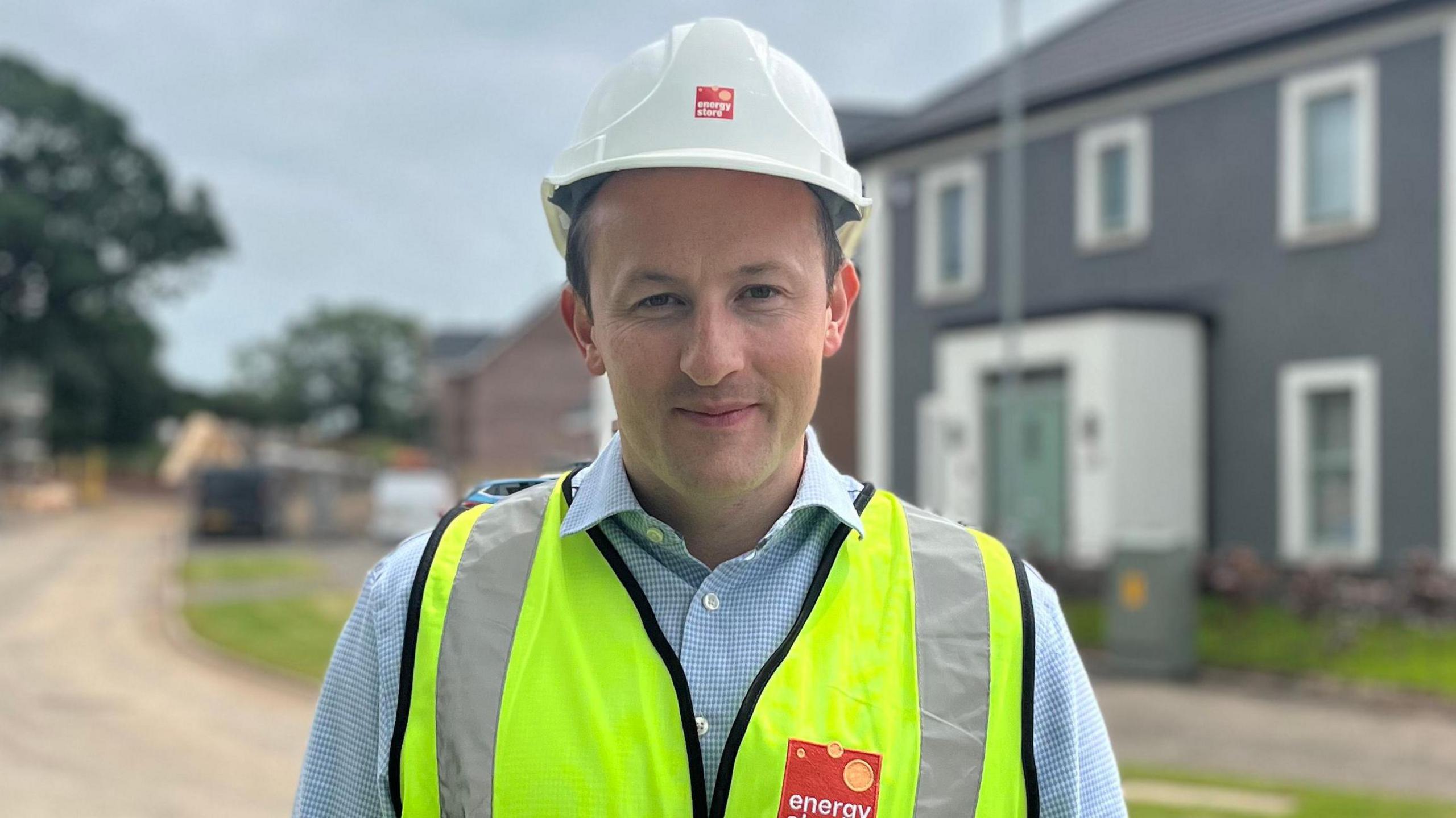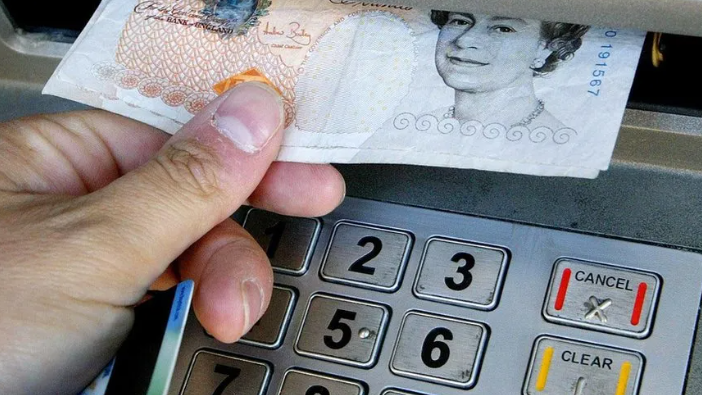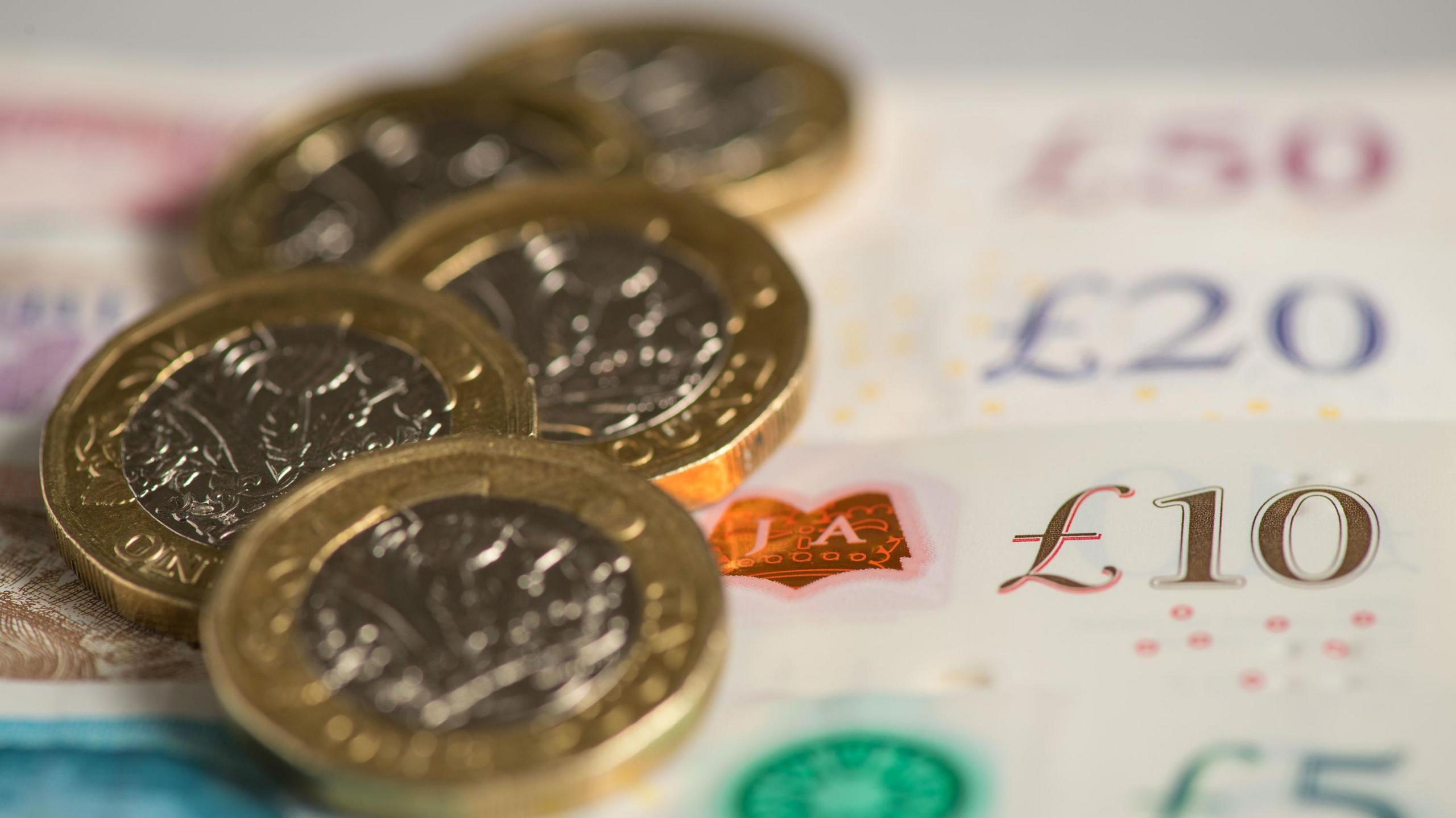Economy in NI shows strong growth in first quarter

Connor McCandless says the construction sector is "typifyed by ongoing uncertainty"
- Published
Northern Ireland’s economy grew strongly in the first quarter of 2024, official data suggests.
The economy expanded by 1.4% compared to the final quarter of 2023.
Most of that growth came from the services sector - which is the largest part of the economy.
There was also growth in the construction sector, however manufacturing output continued to decline.
Northern Ireland’s economy was essentially flat during 2023 as high inflation hit consumer spending and a series of public sector strikes also affected output.
The broader economic environment has been improving recently with the rate of inflation easing and public sector pay disputes being resolved.
That is reflected in a better performance for consumer services with the broad retail and hospitality sector growing by 2.2% in the first quarter of the year.

Data suggests strong economic growth in the first three months of 2024
Best performing part of economy
Services is the largest part of the economy and includes business services.
Business services, which include law, accountancy and management consulting, has been the best performing part of the NI economy since the pandemic.
Output in that sector is at a 10-year high and has expanded by more than 30% since its pre-pandemic level at the end of 2019.
It continued to expand in the first quarter of this year although the rate of expansion has moderated with quarterly growth of 0.7%.
The strong performance may reflect the work that Northern Ireland-based employees do for GB and international customers.

The economy expanded by 1.4% compared to the final quarter of 2023
Glandore serviced office space has taken over seven floors of Arthur House in Belfast city centre and is expanding in response to increased demand for flexible working.
The company's head of member engagement Nial Borthistle said the last six months of 2023 were "challenging".
"But in terms of service providers, this year has been a really good start," he added.

Nial Borthistle says Glandore is off to a good start for 2024
Mr Borthistle said Glandore has seen a number of foreign direct investors, some of whom have taken up space with the company.
"That's an encouraging sign not just for the office market but for Northern Ireland as a whole," he said.
"With Brexit we are seeing more business from the Republic, we're seeing interest from GB in terms of market opportunity for Northern Ireland and in terms of foreign direct investment, we are starting to see some green shoots there."
Construction
The new figures also suggest that the construction sector is recovering after a difficult period.
Construction output has now seen three consecutive quarterly increases including a 4.5% increase in the first quarter of this year.
By contrast the figures suggest that a difficult period for the local manufacturing sector is continuing.
Output across manufacturing fell by 0.4% over the quarter and was down by 3.7% compared to the same period last year.
Manufacturing output was flat for much of 2022 and has been falling since the start of last year.
There is significant variation between manufacturing subsectors with some, such as transport equipment, growing strongly.
NI economy contracted by 0.2% at the end of 2023
- Published28 March 2024
Northern Ireland's economy 'stuck in low growth'
- Published18 January 2024
The insulation industry relies on the construction sector and Managing Director of Energystore Connor McCandless said they are seeing the recovery reflected in these figures.
He said: "Since the start of the year, we have seen the construction sector start to show a few more positive shoots in Northern Ireland.
"Construction is an industry that is typifyed by ongoing uncertainty - whenever there's a downturn, we are the first to feel it. Whenever there are economic changes, we're the first to feel it. But you have to be able to adapt, as the industry has done over the last number of years and we are seeing growth which is something to be positive about."
Mr McCandless said that it has "clearly been a difficult couple of years of ups and downs with interest rates and costs but we are certainly seeing more activity now than this time last year".
“After the interest rate rises, in Northern Ireland we have a lot of self builds and people's mortgage costs were going up a lot. Now that has stabilised, we are starting to see those parts of the housebuild sector start to show positivity in a way that probably they haven't done for the last 18 months."
Better than UK average
The overall figures suggest that the NI economy might be performing better than the UK average, however caution is needed as the UK and GB figures are produced differently and are not fully comparable.
In the first quarter of this year UK GDP increased by 0.6% over the quarter and 0.2% over the year while NI economic output grew by 1.4% over the quarter and 1.1% over the year.